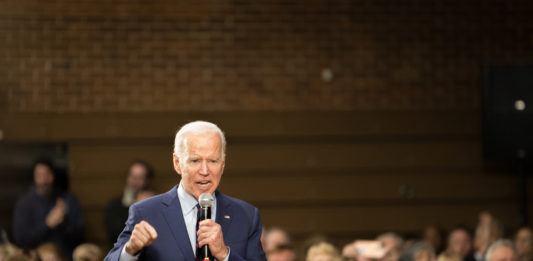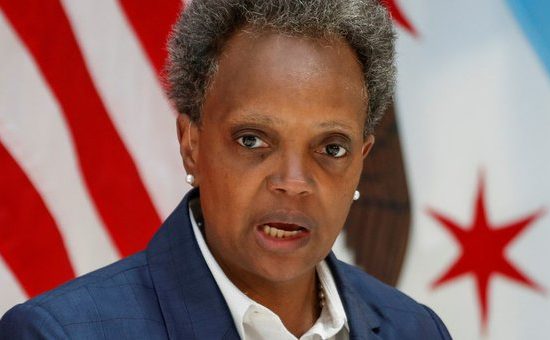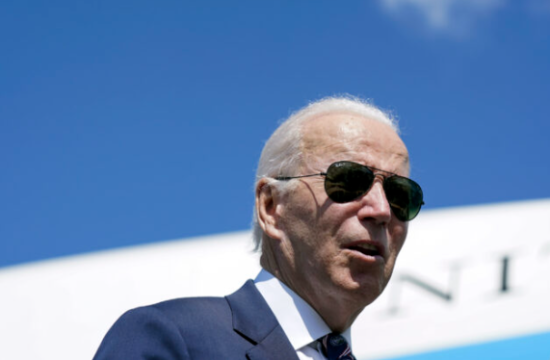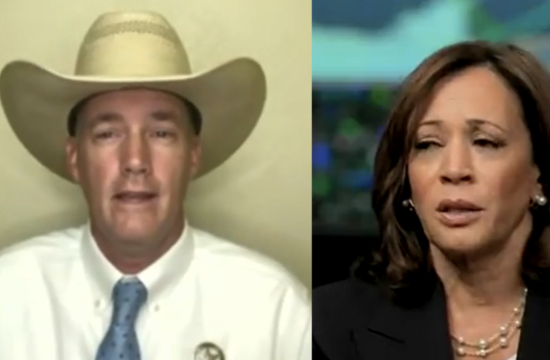Over its illegal vaccine mandate, the Biden administration is retreating. The White House has acknowledged that it must end its authoritarian policy of mandating federal contractors and businesses employing more than 100 people to vaccinate employees for Covid-19. This directive caused havoc in the U.S. economic system for several months.
The Occupational Safety and Health Administration announced it would suspend the federal vaccine mandate’s enforcement:
On Nov. 16, 2021, the federal Occupational Safety and Health Administration (OSHA) announced it is suspending all implementation and enforcement efforts related to the Emergency Temporary Standard (ETS) on mandatory COVID-19 vaccination and testing in the workplace. The announcement follows the Nov. 12, 2021 order from the Fifth Circuit Court of Appeals staying enforcement of the ETS pending a final ruling on its legality. OSHA intends to resume implementation and enforcement of the ETS following litigation if permitted. This newly stated position immediately impacts employers with 100 or more employees who are not federal contractors or otherwise subject to Centers for Medicare and Medicaid Services’ guidance. Such employers can breathe easier, as they are no longer faced with Dec. 5, 2021 and Jan. 4, 2022 compliance deadlines associated with implementing a vaccine mandate or weekly testing program.
According to the Republican Party, there was an “onslaught” of legal challenges that OSHA would have to face in order for them to enforce the policy.
BREAKING: Facing an onslaught of legal challenges, including from the @GOP, the Biden administration is suspending implementation of the vaccine mandate.
— GOP (@GOP) November 17, 2021OSHA finally issued the mandate a month and a half after the White House had announced it in September. This was a poor sign for the mandate. OSHA issued an Emergency Temporary Standard, (ETS), which the federal courts ripped apart as not being in accordance with the law.
“In the order, the Fifth Circuit accuses the current administration of shoe-horning the desire for a federal vaccine mandate into the best, but ill-fitting, vehicle the administration could find – an OSHA ETS,” the National Law Review notes. “The court points out that OSHA’s authority to establish emergency temporary standards is ‘an extraordinary power that is to be delicately exercised’ and criticizes the ETS vaccine rule as ‘a one-size-fits-all sledgehammer that makes hardly any attempt to account for differences in workplaces’.”
“The Fifth Circuit questions whether OSHA has adequately shown a ‘grave danger’ warranting the issuance of an ETS and states that it is ‘dubious’ as to whether the rule will pass ‘constitutional muster’,” the legal analysts note.
The legal analysts point out that the Fifth Circuit is questioning whether OSHA has sufficiently shown a grave danger’ to warrant the issuance of ETS.
Appeal court language is so insistent that the mandate does not pass constitutional muster.
“If the deficiencies we’ve already covered aren’t enough, other miscellaneous considerations seal the Mandate’s fate. For one, ‘[t]he Agency cannot use its ETS powers as a stop-gap measure,’ but concedes that that is precisely what the Mandate is intended to do here,” the ruling added.
It should also be noted that OSHA’s delayed timeline raises serious questions about whether the mandate is grounded within the executive branch’s ’emergency powers. Nearly two years have passed since the outbreak of the Covid pandemic in the United States. According to the CDC’s calculations, more than 160 million Americans have been exposed to Covid-19. They also survived the epidemic with natural immunity. OSHA’s delay in enforcing the mandate ‘after holidays’ is another issue. This indicates that OSHA is not responding to a true emergency.
It remains to be seen if the federal appeals court will get the final word. The judges, however, proved that Biden’s federal mandate to vacate the country was unconstitutional.
“It lastly bears noting that the Mandate raises serious constitutional concerns that either make it more likely that the petitioners will succeed on the merits, or at least counsel against adopting OSHA’s broad reading of § 655(c) as a matter of statutory interpretation,” the court said.
“First, the Mandate likely exceeds the federal government’s authority under the Commerce Clause because it regulates noneconomic inactivity that falls squarely within the States’ police power,” the ruling states. “A person’s choice to remain unvaccinated and forgo regular testing is noneconomic inactivity.” [The court the cited NFIB v. Sebelius (2012) with Chief Justice John Roberts concurring.]
“And to mandate that a person receive a vaccine or undergo testing falls squarely within the States’ police power,” the court continued, adding that precedent had long “settled that it is within the police power of a state to provide for compulsory vaccination.” [Jacobson v. Massachusetts (1905).] “The Mandate, however, commandeers U.S. employers to compel millions of employees to receive a COVID-19 vaccine or bear the burden of weekly testing. The Commerce Clause power may be expansive, but it does not grant Congress the power to regulate noneconomic inactivity traditionally within the States’ police power.”
“Second, concerns over separation of powers principles cast doubt over the Mandate’s assertion of virtually unlimited power to control individual conduct under the guise of a workplace regulation,” the ruling continued. “As Judge Duncan points out, the major questions doctrine confirms that the Mandate exceeds the bounds of OSHA’s statutory authority.”
“Accordingly, the petitioners’ challenges to the Mandate show a great likelihood of success on the merits, and this fact weighs critically in favor of a stay,” the court decided. The judges ruled that the failure to grant the stay would cause irreparable harm to the petitioners, as well as affected companies and employees. It adds that the emergency stay is “in the public interest.”
“The public interest is also served by maintaining our constitutional structure and maintaining the liberty of individuals to make intensely personal decisions according to their own convictions—even, or perhaps particularly when those decisions frustrate government officials,” the court held.
The Court ultimately rejected the mandate, stating that such powers are within the Legislative Branch and not the Executive Branch.
“The Constitution vests a limited legislative power in Congress,” the court stated. “For more than a century, Congress has routinely used this power to delegate policymaking specifics and technical details to executive agencies charged with effectuating policy principles Congress lays down.”
The Fifth District Court of Appeals in New Orleans is one of many lawsuits against the federal vaccine mandate. At least 13 states are lining up against the Biden administration to formally sue it for its illegal decree. These include Alabama, Georgia, Idaho and Mississippi.












